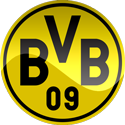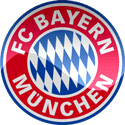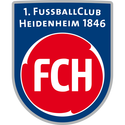Compare and buy Bundesliga tickets to experience one of the world’s top football leagues. The Bundesliga stands out for its vibrant fan culture, iconic stadiums, record-breaking attendances, and thrilling, goal-filled matches. While FC Bayern Munich and Borussia Dortmund are the most famous, every club in the competition offers a unique culture, buzzing stadium, and talented players. Be part of this incredible football experience with German football tickets from Ticket Compare.
Compare and buy Bundesliga tickets to experience one of the world’s top football leagues. The Bundesliga stands out for its vibrant fan culture, iconic stadiums, record-breaking attendances, and thrilling, goal-filled matches. While FC Bayern Munich and Borussia Dortmund are the most famous, every club in the competition offers a unique culture, buzzing stadium, and talented players. Be part of this incredible football experience with German football tickets from Ticket Compare.


































































































































































































































































































Ticket Compare simplifies the process of securing Bundesliga tickets, especially for fans visiting Germany from abroad. No need for club memberships, complex ticket portals, or staying updated on unpredictable ticket sale dates—we handle it all.
Ticket Compare provides access to the best prices on German football tickets with just a click, ensuring only 100% authentic tickets from trusted sellers with secure checkout, guarantees, and prompt customer support.
To Buy Bundesliga Tickets:
In the following section, we’ll cover the overall process of buying football tickets in Germany and show how Ticket Compare makes it seamless for you.
The simple answer to this question is “No”. There’s a massive appetite for attending live football in Germany, so in order to allocate tickets as fairly as possible, almost all clubs sell their tickets to paid-up club members through a presale window before the general public.
As we’ll show a little later, the overwhelming majority of Bundesliga matches sell out, so many Bundesliga tickets will be unavailable through official channels before you have a chance to buy them. This is true for all FC Bayern Munich and all Borussia Dortmund matches. For these clubs, even being a member will not guarantee you tickets.
Meanwhile, for teams like Eintracht Frankfurt, VfB Stuttgart, Bayer Leverkusen and Borussia Mönchengladbach, there is a little more availability for non-members, but matches will still sell out every week so you cannot assume that tickets will be available for a given match.
However, if you go through Ticket Compare, you can buy Bundesliga match tickets for any fixture, no matter the club or opponent.
With attendances of 96.5% of capacity across the league, you should assume that German football tickets will sell out for almost all matches.
The Bundesliga is consistently the highest attended football league in the world, with average attendances of 42,992 in 2022/23 and 39,490 in 2023/24.
The 2023/24 average of 39,490 is from an average capacity of 40,912, with a league-wide occupancy rate of 96.53%
Naturally, some clubs have more ticket availability than others. For instance, FC Bayern Munich have sold out their stadium, the Allianz Arena, for every Bundesliga match going back to when they moved there in 2005/06.
However, some Bundesliga clubs have smaller followings. Take VFL Wolfsburg, who have a stadium capacity of 30,000, with an average attendance of 25,958 in 2023/24, which is an occupancy rate of 86.52%, one of the lowest in the league.
There’s also more availability at TSG Hoffenheim. The Rhein-Neckar-Arena holds 30,150, but the average attendance in 2023/24 was 24,559, down at 81.45%, the lowest in the Bundesliga.
Using our site, Ticket Compare, you can buy Bundesliga match tickets for any fixture, whether it has sold out or not.
Something to remember when buying Bundesliga tickets is that the league’s fixtures will only be confirmed around one month before a given Matchday.
To prove this point, on November 5 in 2024/25, the fixture dates and kick-off times for Matchday 13 (6 Dec - 8 Dec) had not been made public, while Matchday 12 (29 Nov - 1 Dec) were confirmed.
A typical Bundesliga Matchday is spread across three days from Friday to Sunday, with the majority of the fixtures held on a Saturday in the classic kick-off slot of 3:30 pm local time.
The on-sale dates of German football tickets depend on the clubs but tickets are usually sold from about a month before a fixture. For example, Borussia Dortmund tickets are on sale between 4 and 6 weeks before a match, and this is the common sales process across the league.
However, some teams like FC Bayern Munich, Borussia Mönchengladbach and Bayer Leverkusen make their tickets available to members as early as pre-season.
With our platform you can purchase tickets for Bundesliga matches as soon as the fixture list is announced in the summer, and there will be availability right up to kick-off.
Ticket Compare is a fantastic resource if you want to buy Bundesliga match tickets. On this page we have shown that because of the huge demand for German football, it can be tricky to buy tickets for most matches if you go through official channels.
We offer football fans the opportunity to buy tickets for any Bundesliga match, however early or late. You don’t have to worry about ticket sales windows, memberships, or lottery systems—you can buy German football tickets here.
All you have to do is select the match you want to attend and we will find the best prices and seat locations for you to have the perfect Bundesliga match experience.
The price of Bundesliga tickets starts from as little as €15 for the standing sections behind the goals, and rises to €80 for the best seats in the stadium in the longside stands.
These prices vary from club to club, but the cheapest Bundesliga match tickets are never more than €20 and the most expensive are never higher than €80.
For example, Borussia Dortmund matchday tickets range from €18.50 behind the goals to €75, while RB Leipzig match tickets cost from €15 to €74.
Scanning the secondary market, Ticket Compare’s Bundesliga ticket prices will be above or below face value as they are affected by supply and demand.
Bundesliga tickets are relatively cheap compared to other major European leagues, especially the Premier League due the league’s commitment to fan inclusivity and affordability.
Part of this are standing tickets, which are available in every Bundesliga stadium, typically in terraced sections behind the goals and designated areas for away fans.
These unreserved standing areas, which are much more affordable than seated options, offer a unique experience and allow fans to contribute to the crackling atmosphere associated with the Bundesliga.
For the 2023-24 season, the average cost of a standing season ticket is €205.47, with TSG Hoffenheim and VfL Wolfsburg offering the lowest prices at €150 and €160, respectively.
Even top teams like Bayern Munich offer affordable standing season tickets for as low as €165, or €9.70 per game, though availability is non-existent due the stratospheric demand.
The Bundesliga’s traditional approach to fan engagement means that clubs work with supporter representatives to keep ticket prices manageable, often only increasing prices below inflation rates. Additionally, many Bundesliga match tickets include free local public transport, which further reduces costs for fans.
The league’s emphasis on affordable standing tickets, free travel, and fan-centric policies ensures that match attendance remains high, attracting passionate fans and fostering a loyal fan base.
At the end of 2023/24 FC St. Pauli and Holstein Kiel replaced the relegated teams 1. FC Köln and Darmstadt 98. At the end of the 2023/24 season VfL Bochum survived the relegation play-off by defeating Fortuna Düsseldorf.
| Team | Year Founded | League Titles | Nickname | Location | Stadium | Capacity |
| FC Augsburg | 1907 | 0 | Fuggerstädter | Augsburg | WWK Arena | 30,660 |
| Union Berlin | 1966 | 0 | Die Eisernen (The Iron Ones) | Berlin | Stadion An der Alten Försterei | 22,012 |
| VfL Bochum | 1848 | 0 | Die Unabsteigbaren (The Unrelegatables) | Bochum | Vonovia Ruhrstadion | 26,000 |
| Werder Bremen | 1899 | 4 | Die Werderaner | Bremen | Weserstadion | 42,100 |
| Borussia Dortmund | 1909 | 5 | Die Schwarzgelben (The Black and Yellows) | Dortmund | Signal Iduna Park | 81,365 |
| Eintracht Frankfurt | 1899 | 1 | Die Adler (The Eagles) | Frankfurt | Deutsche Bank Park | 58,000 |
| SC Freiburg | 1904 | 0 | Breisgau Brasilianer (Breisgau Brazilians) | Freiburg im Breisgau | Europa-Park Stadion | 34,700 |
| 1. FC Heidenheim | 1846 | 0 | FCH | Heidenheim | Voith-Arena | 15,000 |
| TSG Hoffenheim | 1899 | 0 | Die Kraichgauer | Sinsheim | PreZero Arena | 30,150 |
| Holstein Kiel | 1900 | 1 | Die Störche (The Storks) | Kiel | Holstein-Stadion | 15,034 |
| RB Leipzig | 2009 | 0 | Die Roten Bullen (The Red Bulls) | Leipzig | Red Bull Arena | 47,800 |
| Bayer Leverkusen | 1904 | 0 | Die Werkself (The Company Eleven) | Leverkusen | BayArena | 30,210 |
| Mainz 05 | 1905 | 0 | Die Nullfünfer (The 05ers) | Mainz | Mewa Arena | 33,305 |
| Borussia Mönchengladbach | 1900 | 5 | Die Fohlen (The Foals) | Mönchengladbach | Borussia-Park | 54,042 |
| Bayern Munich | 1900 | 32 | Die Bayern | Munich | Allianz Arena | 75,000 |
| FC St. Pauli | 1910 | 0 | Kiezkicker | Hamburg | Millerntor-Stadion | 29,546 |
| VfB Stuttgart | 1893 | 3 | Die Schwaben (The Swabians) | Stuttgart | MHPArena | 60,058 |
| VfL Wolfsburg | 1945 | 1 | Die Wölfe (The Wolves) | Wolfsburg | Volkswagen Arena | 28,917 |
The Bundesliga stands out among all other football leagues for the way it combines a vibrant fan experience, affordability, and strong cultural foundations. Known for record-breaking average attendances, which we mentioned above, it offers an atmosphere that is both raucous and inclusive.
On the pitch, the Bundesliga gives you exciting, high-scoring matches, often achieving Europe’s highest goals-per-game rate. For instance, in the 2021/22 season the Bundesliga recorded 954 goals scored across 306 matches, averaging 3.12 goals per game, more than any other top European league.
The league also develops a lot of young talent, requiring clubs to maintain academies, which have produced world-class players from Manuel Neuer to Philipp Lahm to Florian Wirtz.
The Bundesliga’s 50+1 rule ensures that fans hold majority ownership in clubs, protecting against corporate dominance and maintaining a sense of community.
Technologically, the Bundesliga is a leader, being an early adopter of VAR and using 5G and virtual advertising to enhance fan engagement. This combination of affordability, community focus, and thrilling, innovative play makes the Bundesliga like no other league in the world.
The "50+1 Rule" is a unique ownership regulation in German football designed to keep clubs mainly in the hands of their members, safeguarding fan influence. It requires that club members hold at least 50% plus one vote of decision-making rights, ensuring majority control.
This prevents external investors from making profit-driven decisions that might not chime with fan interests. Implemented in 1998, the rule supports affordable Bundesliga ticket prices, responsible financial management, and strong fan engagement.
Certain clubs, like Bayer Leverkusen and VfL Wolfsburg, are exempt due to long-term corporate involvement before joining the Bundesliga, and Hoffenheim’s Dietmar Hopp was granted an exception for consistent support.
One club that isn’t an exception is RB Leipzig, which has faced criticism for its limited membership structure. RB Leipzig adheres to the 50+1 Rule, but voting rights are primarily held by Red Bull employees, restricting broader fan influence. This setup highlights ongoing debates in German football about club ownership and adherence to traditional values amidst growing commercial interests.
Indeed, fan resistance remains high for any rule changes, as seen in 2017 when Hannover’s president Martin Kind attempted and failed to challenge it.
Most fans agree that the rule preserves the Bundesliga’s fan-oriented culture, while some call for flexibility to compete financially with foreign-owned clubs in other leagues. Despite challenges, the "50+1 Rule" is widely credited for cheap Bundesliga tickets, the league’s robust fan culture and the clubs’ stable club finances.
Another of German football;s unique qualities is the sheer number of fans who travel to the opponent's stadiums for away matches.
Away fans are allocated 10% of Bundesliga tickets in stadiums, and when you consider the size of the average ground in the German top flight, this gives rise to some massive away crowds.
For example, Borussia Dortmund will often receive more than 8,000 travelling fans at the Westfalenstadion, and Bayern Munich host 7,500 away supporters at the Allianz Arena.
Yes, Germany is one of the few countries where you’re able to take a beer into the stands. In fact, the price of a beer is seen as an important measure of a football stadium experience in the Bundesliga.
In 2024/25 the average price of a half-litre serving of beer in the Bundesliga was just over €5.20. Another prized aspect of a German matchday is the sausage (Bratwurst) to accompany your beer. Again, the prices are taken very seriously, and fans are consulted on any rise, as part of the 50+ 1 Rule. The average price of a sausage in 2024/25 was €3.80.
The Bundesliga, Germany’s top football league, was founded on July 28, 1962, during the Deutscher Fußball-Bund (DFB) convention in Dortmund and began its first season in 1963-64.
Originally consisting of 16 teams, it expanded to the current total of 18 clubs in 1965. The first champion was 1. FC Köln, while Hamburg's HSV was the last founding team to compete continuously until its relegation in 2018.
Since the 1970s, Bayern Munich has emerged as the Bundesliga's powerhouse, claiming 32 titles, including 11 consecutive championships from 2013 to 2023—the longest run by any club in Europe’s "Big Five" leagues.
The Bundesliga’s unique structure includes relegation play-offs between teams from the 1. and 2. Bundesliga, with the bottom two teams relegated automatically. Since 2008, the Bundesliga follows a 34-matchday season from August to May. The league boasts the highest average attendance in world football, with Borussia Dortmund’s Signal Iduna Park averaging 80,000+ fans.
Notable achievements include Bayern Munich’s five European titles and Dortmund’s Champions League win in 1997. Other champions like Borussia Mönchengladbach (five titles) and Werder Bremen (four titles) contributed to the league's competitive edge.
Last but not least, the 50+1 Rule, mandating majority fan ownership, shapes the Bundesliga’s fan-focused culture. Structurally, the league aligns with UEFA Financial Fair Play standards, requiring clubs to maintain financial health. Today, the Bundesliga is broadcast in over 200 countries, making it a global spectacle known for its fan-centric ethos, exciting play, and historical milestones.
While contributing to a Germany squad that has won three UEFA European Championships (1972, 1980, 1996) and four FIFA World Cups (1954, 1974, 1990, 2014) since the league was founded, the Bundesliga has hosted a lot of world-class international players. Let’s check out some of the best:
These stars not only made significant contributions to their clubs but also brought international attention to the Bundesliga during their time in the league.
| Rank | Club | Matches Unbeaten | Year (s) |
| 1 | Bayern Munich | 53 | 2012-14 |
| 2 | Bayer Leverkusen | 43 | 2023-24 |
| 3 | Hamburger SV | 36 | 1982-83 |
| 4 | Bayern Munich | 36 | 2022-23 |
| 5 | Borussia Dortmund | 31 | 2011-12 |
| 6 | Bayer Leverkusen | 28 | 2009-10 |
| Date | Teams | Score | Total Goals |
| 29 April 1978 | Borussia Mönchengladbach vs Borussia Dortmund | 12-0 | 12 |
| 8 February 1975 | Bayern Munich vs Schalke 04 | 11-1 | 12 |
| 20 November 1982 | Borussia Mönchengladbach vs Arminia Bielefeld | 10-0 | 10 |
| 9 September 2017 | Borussia Dortmund vs SC Freiburg | 9-1 | 10 |
| 18 March 2006 | Werder Bremen vs VfL Wolfsburg | 8-1 | 9 |
| Decade | Most Successful Club(s) | Titles | Other Notable Clubs |
| 1960s | 1. FC Köln, Bayern Munich, Werder Bremen | 1 each | Borussia Mönchengladbach, 1860 Munich |
| 1970s | Bayern Munich | 4 | Borussia Mönchengladbach (5 titles), Hamburg (1 title) |
| 1980s | Bayern Munich | 5 | Hamburg (2 titles), VfB Stuttgart (1 title) |
| 1990s | Bayern Munich | 6 | Borussia Dortmund (2 titles), 1. FC Kaiserslautern (2 titles) |
| 2000s | Bayern Munich | 5 | Borussia Dortmund (1 title), Werder Bremen (1 title), VfB Stuttgart (1 title), Wolfsburg (1 title) |
| 2010s | Bayern Munich | 7 | Borussia Dortmund (2 titles) |
| 2020s | Bayern Munich | 4 (ongoing) | Borussia Dortmund (1 title), Bayer Leverkusen (1 title) |
German football is filled with rivalries, for regional, competitive or political reasons. Without question, the rivalry that attracts the most attention from abroad is Der Klassiker between Bayern Munich and Borussia Dortmund.
Above all else, Der Klassiker is a relatively new competitive rivalry, beginning in the mid-90s when BVB won back to back league titles ahead of FC Bayern.
Exactly 25 of the 30 Bundesliga titles between 1994/95 and 2023/24 were won by these two teams. With tickets to Bayern Munich vs Borussia Dortmund you’ll see a match with the highest stakes, that could decide who lifts the The Bundesliga Meisterschale, the Bundesliga’s championship shield. In 2013 these two teams met in the Champions League final, with Bayern Munich lifting the trophy.
In the 2020s many of German football’s historical rivals have been divided by separate divisions. For instance, the Rhine Derby, between 1. FC Köln and Borussia Mönchengladbach is disrupted by Köln’s relegation to the 2. Bundesliga. Meanwhile the Nordderby (North Derby), between Werder Bremen and Hamburger SV, last took place in 2021/22 when both teams were in the 2. Bundesliga.
By virtue of being the most successful club and the team to beat, Bayern Munich compete in a host of derbies, although some of them are on hiatus due to opponents’ relegations. Two that you can catch in the 2024/25 season are the Nord-Süd Klassiker (North-South Classic) against Werder Bremen, and the Südderby (South Derby) against their VfB Stuttgart.
Yes, completely safe. We only work with football ticket resellers that provide guarantees for their buyers. We also conduct a complete review of every resale platform that we include on our site, and if they don’t make the grade they won’t feature in our listings.
By using the secondary market. Ticket Compare sources tickets from a wide range of trusted secondary marketplaces, so we can list extra tickets with a wider range of locations and prices, to suit you.
It depends on the matchup. The factor that will drive up the prices of many Bundesliga match tickets on resale platforms is scarcity. For teams like FC Bayern Munich and Borussia Dortmund, it may be difficult to source German football tickets under face value.
Yes you can buy last-minute tickets for Bundesliga matches at the stadiums on matchday, but only for certain clubs. TSG Hoffenheim and VfL are the obvious candidates because their matches tend not to sell out. However, for every other club it’s safer to use Ticket Compare to secure last-minute Bundesliga match tickets.